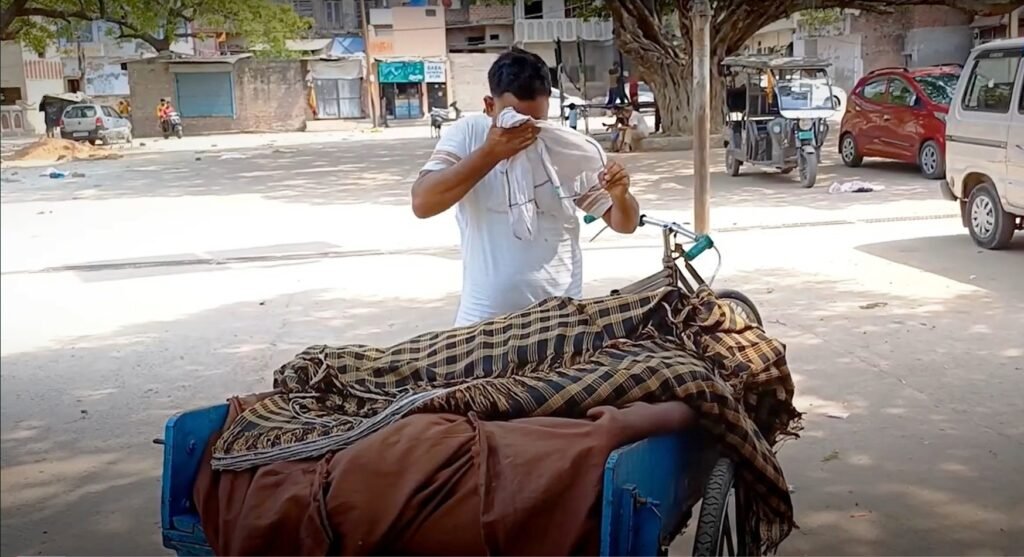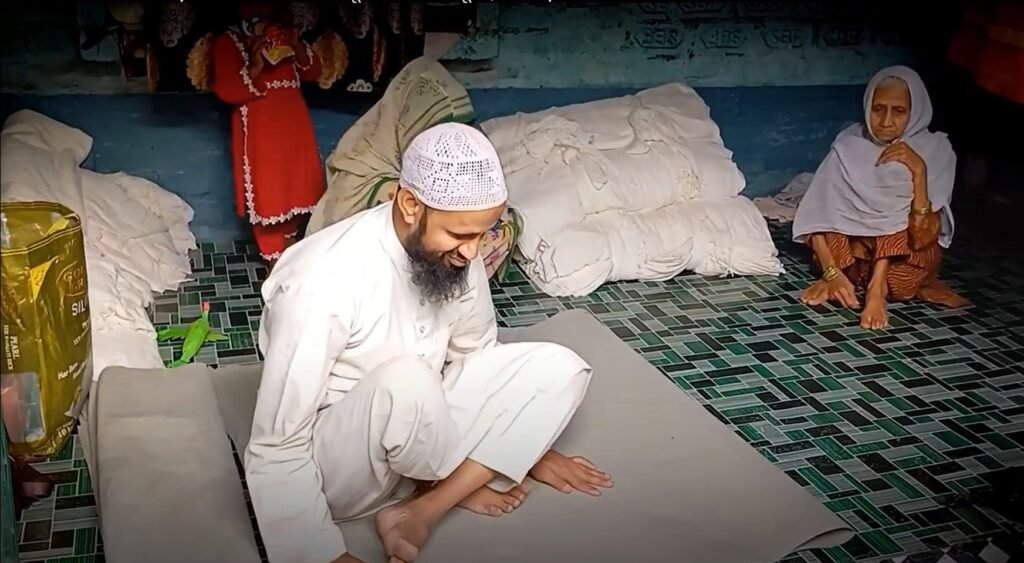Modernisation scheme faces financial crisis, affecting education and livelihoods
Mohammad Alamullah | Clarion India
NEW DELHI — Thousands of modern teachers in madrasas across Uttar Pradesh are facing severe financial hardship due to unpaid salaries. The situation highlights the challenges of the Madrasa Modernisation Scheme, which aimed to integrate contemporary education into traditional Islamic schools but has been plagued by funding issues.
Mohammad Akram Ansari, a resident of Barabanki, about 28 km from the state capital Lucknow, has been teaching maths, science, and English in a madrasa since 2012. “I used to get Rs 12,000 a month from the central government,” he explained. “When Akhilesh Yadav (Samajwadi Party) was in power, I started getting Rs 3,000 from the state government, so I received 15,000 rupees a month. But now, I am not getting anything.”
Akram questioned Prime Minister Narendra Modi’s assertion that he wanted madrasa students to have Qur’an in one hand, and a laptop in the other. “We feel that now a bowl will come in hand. We are now driving a cart. One round gets Rs 20, and work worth Rs 150 is done in a day. We received only three years’ honorarium from the central government since 2012,” he said.
“Our lot number was 273, and there was a lot of teachers’ money due in it. For this session, we got money from the state government for April and May. There are five people in my family; 3,000 rupees are not enough to meet the expenses,” he continued.

Widespread Crisis
Akram’s story is echoed by many modern teachers in Uttar Pradesh. They claim they have not received their central government salaries for several years, and the additional payments from the Uttar Pradesh government stopped in January 2024. Dr Iftikhar Javed Ahmed, chairman of the Uttar Pradesh Madrasa Education Board, confirms this, stating, “The money from the state government has not been received for the last year, while it has been six years since it was stopped by the central government.”
The Madrasa Modernisation Scheme was launched by the Ministry of Human Resource Development in 1993-94 to provide education in Hindi, English, Science, Mathematics, Social Sciences, and other languages in madrasas. This ministry was later renamed the Ministry of Education. Under the scheme, graduates were paid Rs 6,000 per month and postgraduates Rs 12,000. In addition, the Uttar Pradesh government provided extra money: Rs 2,000 for undergraduate teachers and Rs 3,000 for postgraduate teachers, a policy announced in 2014.
According to the Uttar Pradesh Madrasa Education Board, more than 21,000 modern teachers are posted in 7,442 registered madrasas across the state. They are from every community, teaching subjects like Hindi, English, maths, science, and social science to about 10 lakh students. Of the registered madrasas, 560 are government-aided.
The financial struggles of these teachers are severe. Mohammad Sufiyan Ansari from Sahadatganj town in Barabanki, says: “I have been teaching for the last 12 years. We used to get Rs 12,000 from the central government and Rs 3,000 from the state government. However, we have not received any honorarium from the central government for the last seven years. I taught English and maths. I am running the family with some sewing work, earning 200 to 250 rupees a day. With a family of four, how will we manage with so little money?”
Sufiyan adds: “Leaders make promises in elections, but as soon as the elections are over, everyone forgets us.”

The Broader Impact
The lack of financial support has left many teachers struggling to survive. Zaid Ansari, also from Sahadatganj, has been teaching in the madrasa since 2009 and is disabled. “There are starvation-like conditions at home,” he says. “Raising a family is no less than a challenge for me. The responsibility of my old mother and three children is on me. I am doing weaving work to earn my living.”
Political and Administrative Responses
Minority Affairs Minister Smriti Irani stated in the Rajya Sabha last year that the Scheme for Providing Quality Education in Madrasas (SPQEM) was demand-based and to be implemented by March 3, 2022. On January 8, 2024, a letter from the State Director of Minority Affairs in Uttar Pradesh to various stakeholders, including district magistrates, indicated that the state government was withholding the honorarium as it was a supplementary scheme linked to SPQEM.
Dr. Ahmed of the madrasa board argues that the government should reconsider the decision. “Thousands of students of madrasas were connected to mainstream education through SPQEM. In such a situation, the dream of a Qur’an in one hand and a laptop in the other can never be realised.”
Uttar Pradesh’s Minister of State for Minority Welfare Danish Azad Ansari said the Yogi Adityanath government was very serious about madrasa modernisation teachers. “Since the Centre has stopped the honorarium, it has also stopped here due to technical reasons. A solution to this problem is being found.”
Promises vs. Reality
The financial difficulties faced by these teachers stand in stark contrast to the promises made by political leaders. On March 1, 2018, Prime Minister Modi said at an event, “Complete prosperity and overall development is possible only when you see that Muslim youth have Qur’an Sharif in one hand and computer in the other. Today it is most important that our youth are connected to humane Islam and modern science and technology.”
That same year, the Uttar Pradesh chief minister echoed this sentiment, saying: “We have to decide where we want to take our present generation. How many clerics and scribes do you want? How many mutawallis do you want? Your traditional education will only give you that. Why shouldn’t it be modern? Is it not the right of a young man who is studying in a madrasa to make him a good citizen, to become APJ Abdul Kalam? If the government runs a campaign to educate them about science, mathematics and computers, then why oppose it?”

The Path Forward
The plight of these teachers reflects a broader crisis affecting the education and prospects of thousands of students in Uttar Pradesh. Despite the promises made by leaders, the lack of financial support has left many struggling to survive. The hope for modern education in madrasas, which aims to bridge traditional and contemporary learning, remains unfulfilled as these teachers wait for their due compensation.
As the government and concerned authorities search for solutions, the immediate needs of these educators must be addressed to ensure that the goals of the Madrasa Modernisation Scheme can be realised, offering a future where students can indeed have Qur’an in one hand, and a laptop in the other.

